Sabrina Aripen describes her experience at the South East Asia Renewable Energy People’s Assembly, held recently in Sandakan, Sabah.
Sounds of birds chirping away in the trees woke me up from my restful slumber. A much needed rest after a seven hour long bus ride from Kota Kinabalu to Sepilok, Sandakan.
“What time is it?”, I asked myself, as I groggily opened one eye and caught a sight of the sun rising, as it cast its orange glow over the tall green trees of the forest. Awed by the beauty, I wasn’t sleepy anymore.
What a beautiful start to the first day of the South East Asia Renewable Energy People’s Assembly (SEAREPA)!
But wait a minute.. how did I, someone who is not specifically working on green issues, get to join in the fun at SEAREPA? And why would I, someone without the right background, choose to spend five days away for this purpose?
It was when I was doing my write-up for LoyarBurok that it hit me. The memories came flooding back. I was such a geek back in my school days! *blush*
At age 15, I walked around in my favourite t-shirts with slogans of “Save the Earth” or “Save the Rainforests”. I obsessed about the use of paper bags vs plastic bags. I wrote an essay on loving nature for school and won first place. I joined beach clean-ups, and voluntarily organized a booth in college to fund-raise for an environmental NGO. And geez… I remember introducing myself excitedly on the first day of college: “Hi, my name is Sabrina, and I am enrolled in this course because my ambition is to study Environmental Science”.
“And then work to SAVE THE WORLD!”, I might have shouted in my enthusiasm. *cringe*
Even though my study options changed to finance due to personal circumstances, I never failed to remind people what my first choice was.
Anyway, back to SEAREPA…
I was invited to attend on behalf of the Borneo Youth Revolution, by fellow LoyarBurokker June Rubis. Imagine, finally, an opportunity to be involved in something that has been my area of interest for many years, so naturally I had said yes!
Initially, I was worried that I couldn’t fit in, or that it would be so technical that I wouldn’t be able to keep up. But I need not have worried because it was just like any other convention that I had ever attended. Though, if it had been a feminist or human rights convention, I’d probably have more to talk about or share.
For three days, we discussed energy issues happening around Asia via the Open System Technology (OST), meaning we could join in any topics of discussion simultaneously going on as we liked. It was more Asia than just South East Asia as there were delegates from Bangladesh and India, as well as people from Indonesia, Philippines, Thailand, Laos, Myanmar… UK and USA too!
Basically, we are all facing the same issue: governments wanting mega power projects, at the expense of lives of people in the affected areas, as in the case of building mega dams (please read: Development and issues facing Sabah’s indigenous communities).
The question arises: why are all these countries so bent on being huge energy producers? Why do we need to produce so much energy, when all the energy problems could perhaps be solved by small renewable energy generators in specific locations-of-need?
As we speak, there are several places throughout Malaysia that do not have access to electricity or clean water. One of such is an Orang Asli settlement, located a mere one kilometre away from the bustling city of Kuala Lumpur, as I had learnt from a dependable source.
For the first round of OST, I joined in the discussion on handing over knowledge (technology transfer) to villages in regards of installing and maintaining Micro-Hydro Projects (MHP). It is not such a straightforward issue, especially when coupled with low literacy rates in villages, as well as limitations due to low access of communications network.
For the second round, I decided to be a butterfly and roam from discussion to discussion, until I stopped at another similar discussion: people from villages located in rural areas were wondering how to get access to better communications, and whether setting up their own association would assist in ensuring better infrastructure for their village. I understood this problem, for as early this year, I travelled to a mountainous area off Kota Kinabalu, where kids walk two to three hours from their kampung to get to school – such places are not accessible by roads.
On my last session, I decided to have fun and learn about making videos and storytelling: a skill that would be useful in communicating relevant issues to the public, and making them heard. Let’s face it, people are not bothered with issues, unless they can feel personally involved.
How can you expect a city-dwelling person whose biggest problem of the day would be finding a good, cheap parking spot in the city, to empathize with a villager who doesn’t have electricity to power up lights at night? It’s just not easy to fathom that we may live in the same country, yet face such problems that are worlds apart.
On the last day, the focus was on discussing projects that we, the participants, would like to establish before the next SEAREPA event in one year’s time. It was also a time for networking, as we found similar-minded individuals to work with. Some readily-established projects such as SAVE Rivers found new allies at SEAREPA, while there were also new projects proposed such as setting up a South East Asian mongabay.com portal, focusing on environmental news from the region.
After four nights at SEAREPA, I felt that I had found my long-lost niche, a dream long-forgotten. As I return to KK, and back to reality of teaching, spreadsheets and financial statements, I am not sure how, when or where I will be connected to this area of interest again.
But I sure hope I will.

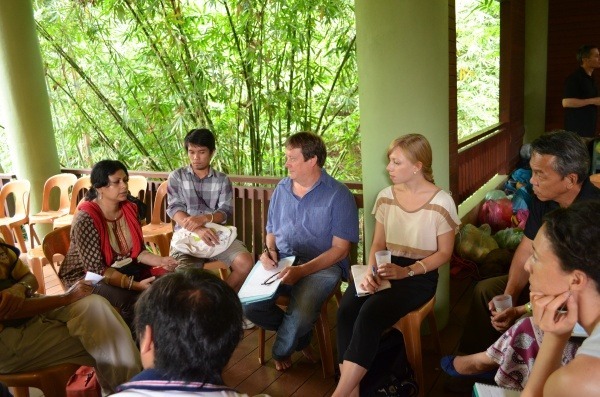
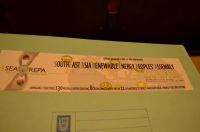
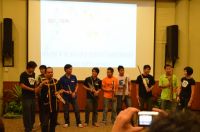
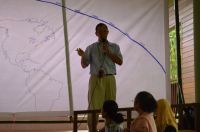
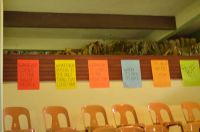
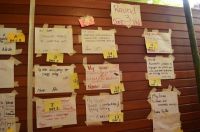
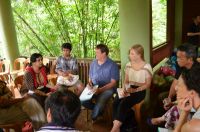
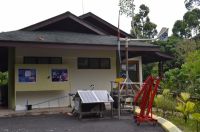
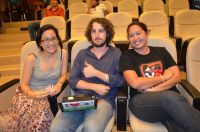
Thanks for educational besides useful enter, clearly in your periodical all is gorgeous. if you notify educational statements on websites there's continually the expectation that authentic persons can succeed via